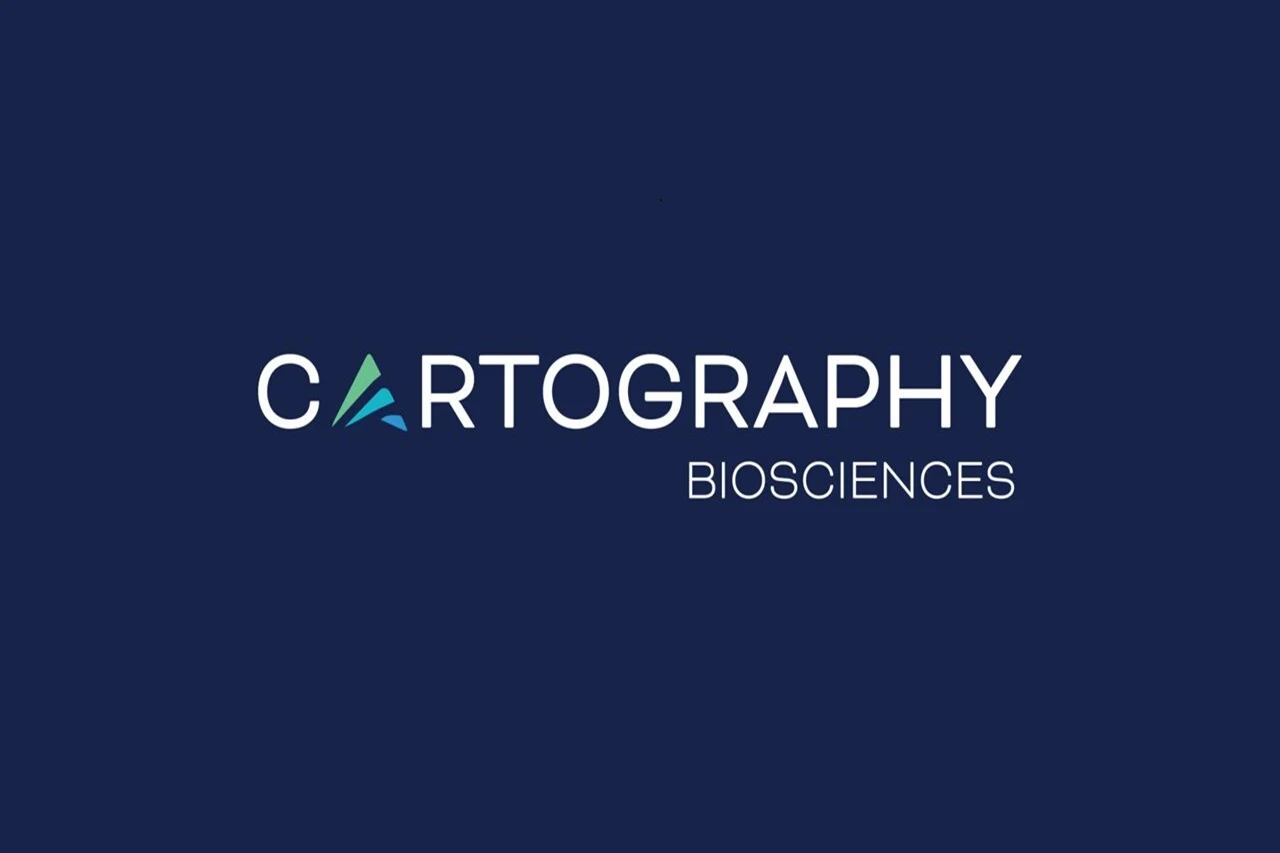Cartography Biosciences, Inc., a biotechnology company pioneering next-generation T-cell–engaging bispecific and multispecific antibody therapeutics, announced the successful close of a $67 million Series B financing round. The new capital will be used to advance the company’s lead program, CBI-1214, into clinical trials and accelerate additional oncology programs emerging from its proprietary ATLAS and SUMMIT discovery platforms.
The round was led by Pfizer Ventures, marking a significant endorsement of Cartography’s scientific and strategic direction. New investors LG Corp, Amgen Ventures, Finchley H.V., Global BioAccess Fund, and Lotte Holdings CVC also joined, alongside existing investors Andreessen Horowitz (a16z) Bio + Health, 8VC, Wing Venture Capital, Catalio Capital Management, AME Cloud Ventures, ARTIS Ventures, and Gaingels.
As part of the financing, Michael Baran, MBA, Ph.D., Partner at Pfizer Ventures, has joined Cartography’s Board of Directors, bringing decades of experience in biopharmaceutical investment and innovation. Additionally, Troy E. Wilson, Ph.D., J.D., who previously joined the company as an independent director, has been elected Chairman of the Board.
A New Frontier in T-Cell Engagers
Cartography’s approach focuses on precisely targeting tumor-specific antigens with engineered bispecific and multispecific antibody molecules that recruit T-cells to selectively eliminate cancer cells. This mechanism of action has already shown transformative potential in hematologic cancers, but Cartography aims to expand it into solid tumors—an area historically resistant to such therapies.
“Cartography is uniquely positioned to lead the next generation of T-cell engagers, with a novel late preclinical program for colorectal cancer,” said Michael Baran of Pfizer Ventures. “The company’s strong discovery engine and growing pipeline represent a new chapter in antibody-based oncology. Pfizer Ventures is proud to support their mission to deliver more effective and targeted treatments to patients with few existing options.”
Lead Candidate: CBI-1214 Targets Colorectal Cancer
Cartography’s lead asset, CBI-1214, is a T-cell engager targeting LY6G6D, a highly specific tumor antigen found primarily in colorectal cancer (CRC). Unlike many other tumor antigens, LY6G6D exhibits minimal expression in healthy tissues, reducing the risk of off-target toxicity. The antigen is uniquely expressed in microsatellite stable (MSS) and microsatellite instability-low (MSI-L) subtypes of colorectal cancer—together accounting for the majority of CRC cases, yet largely unresponsive to current immunotherapies.
“Colorectal cancer remains one of the most prevalent and deadly cancers worldwide, and patients with MSS and MSI-L subtypes continue to face limited treatment options,” said Kevin Parker, Ph.D., CEO of Cartography Biosciences. “With CBI-1214, we are developing a molecule that precisely targets this underserved population with a differentiated mechanism and engineered features designed to maximize anti-tumor activity.”
CBI-1214 integrates advanced protein engineering innovations to enhance tumor penetration, T-cell activation, and therapeutic durability. The molecule has demonstrated compelling preclinical activity, with strong tumor-cell killing, potent cytokine modulation, and a favorable safety profile—key milestones supporting its advancement to IND (Investigational New Drug) submission later this year.
Data-Driven Discovery: ATLAS and SUMMIT Platforms
Cartography’s innovation pipeline is powered by its ATLAS and SUMMIT discovery platforms, which combine genomic, transcriptomic, and spatial proteomic data from thousands of human tumor samples. These AI-driven systems enable the company to map tumor-specific antigens, identify novel immune targets, and engineer optimized antibody architectures designed for clinical effectiveness.
“By integrating massive datasets from real patient tumors, we can precisely chart where and how cancer expresses potential targets,” said Dr. Parker. “Our technology goes beyond traditional discovery by incorporating spatial and immune-context data, allowing us to design antibodies that interact with the tumor microenvironment in more sophisticated ways.”
The ATLAS platform identifies and validates tumor-restricted targets across diverse cancer types, while SUMMIT focuses on computational protein design and antibody engineering to build and refine bispecific and multispecific constructs. Together, they create a continuous loop of discovery, validation, and optimization that accelerates the translation of new targets into therapeutic candidates.
Strategic Momentum and Growing Pipeline
Beyond CBI-1214, Cartography has multiple preclinical programs addressing other solid tumors, including lung, pancreatic, and ovarian cancers. Each program targets unique tumor antigens identified through its discovery engines, with the goal of expanding the reach of T-cell engagement technologies to cancers previously considered “cold” or immunologically silent.
The company’s broad and modular antibody engineering platform allows rapid iteration between different binding domains and T-cell recruitment architectures, enabling tailored solutions for distinct tumor types and patient subpopulations. This flexibility also opens avenues for combination approaches with checkpoint inhibitors, cell therapies, and other immune modulators.
Cartography’s leadership team brings deep expertise in oncology, computational biology, and protein engineering, with a track record of translating cutting-edge research into clinically validated therapies.
Backing from Global Life Sciences Investors
The Series B financing reflects continued investor confidence in precision immuno-oncology and in Cartography’s differentiated strategy. The participation of strategic corporate investors such as Pfizer Ventures, Amgen Ventures, and LG Corp highlights strong industry alignment around the company’s therapeutic vision.
“Cartography’s data-driven approach exemplifies the next wave of antibody innovation,” said a spokesperson for Amgen Ventures. “By combining advanced molecular engineering with intelligent target discovery, they are tackling some of the toughest solid tumors with unprecedented specificity.”
The new funding will be used to advance CBI-1214 through IND-enabling studies, support the initiation of a first-in-human clinical trial in early 2026, and expand preclinical development of additional assets from the ATLAS and SUMMIT platforms.
Looking Ahead
With this financing, Cartography aims to solidify its position as a leader in next-generation antibody therapeutics, bridging the gap between genomics-driven discovery and clinical translation. The company’s focus on solid tumors—historically resistant to immunotherapy—represents both a major challenge and a transformative opportunity in oncology.
“CBI-1214 is just the beginning,” said Dr. Parker. “Our mission is to bring the precision of genomic discovery to antibody drug development, enabling us to create safer, more effective treatments for cancers that have long evaded existing approaches. The continued support from world-class investors validates our belief that this is the future of targeted oncology.”



